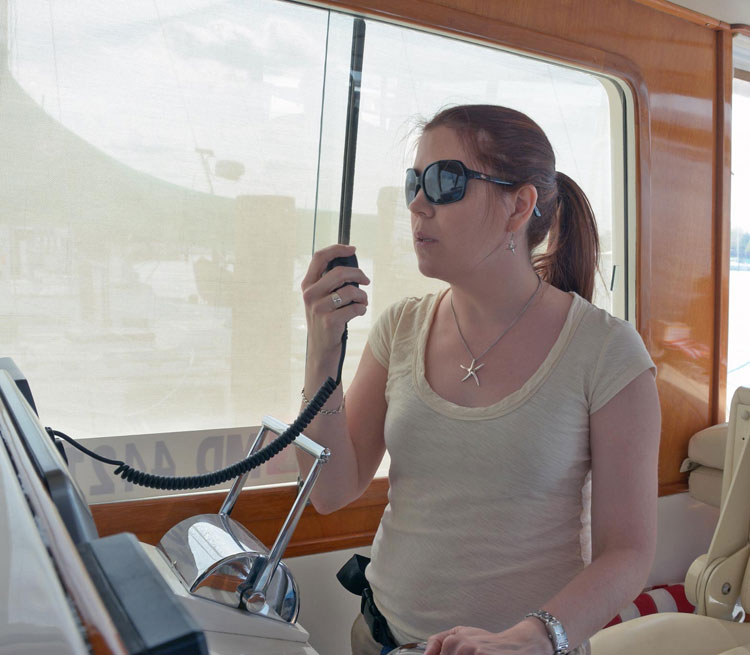Digital Selective Calling (DSC) VHF radio communication can be crucial in a a boating or sailing emergency and provide rescuers critical GPS location information. But when buying or selling a boat equipped with this important communication device, there are a few things all boat owners should know about updating the associated identification information. The Boat Owners Association of the United States (BoatUS) offers the following practical advice to ensure that DSC-VHF information is accurate and up-to-date after a sale or purchase. That way, when you do need help, it arrives as quickly as possible.

The MMSI issue: DSC-VHF radio-equipped vessels must be registered and issued a Maritime Mobile Service Identity (MMSI) number that is then entered into the radio. Unlike a phone number that stays with you when you move across town, a boat’s MMSI always stays with the boat, so any subsequent owner must update the MMSI number with his or her new contact information. To make this easier, print a copy of your MMSI certificate, write down your registration login name and password and keep it in a safe place. This will make managing your boat’s MMSI easier if any registration details change or when it is sold to a new owner.
Hand-held DSC-VHF radios – who should get them when the boat is sold? Some boaters have both fixed-mount and hand-held DSC-VHF radios aboard, and both can share the same MMSI number. When selling, it’s wise to include any hand-held DSC-VHFs in the purchase and not take them with you to the new vessel. It would be dangerous to have the same MMSI being used by more than one vessel, and hand-held DSC-VHF radios often need to be sent to the manufacturer for a “factory reset” before they can be updated with a new MMSI number – a time-consuming process.
The international quirk: It’s OK to use your DSC-VHF radio for communications purposes when transiting foreign waters. Once you communicate with or enter a foreign port (“foreign station”), however, a US-registered boat must have a federal Ship Station License. These are only issued by the Federal Communications Commission, which also provides an appropriate internationally accessible MMSI number as part of the $220 Ship Station License fee, good for 10 years. The benefit of receiving an MMSI from the FCC is that your emergency contact information goes into an internationally accessible database (also accessible to the US Coast Guard), potentially speeding a foreign rescue. MMSI numbers not issued by the FCC are only entered into the US Coast Guard database used for domestic waters. Boaters can learn more at the BoatUS Foundation for Boating Safety and Clean Water’s free online DSC-VHF radio tutorial.
DSC-VHF radio and Automatic Identification System (AIS): While both use the vessel’s same MMSI number when it comes to registration, DSC-VHF radio and Automatic Identification System (AIS) do not share any other relationship, and each has a completely different process to follow when buying and selling a boat, or potentially when changing a boat’s name (an AIS requirement).
BoatUS offers an easy online MMSI registration for $25 that makes obtaining an MMSI number simple, adds an extra layer of safety by partnering with the US Coast Guard to share information, and offers valuable boater benefits. This registration fee includes complimentary BoatUS membership. Go to BoatUS.com/MMSI for more.
For more information about onboard communications, safety, and more visit Boat Owners Association of The United States (BoatUS)




